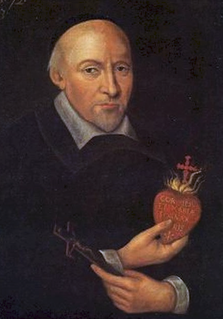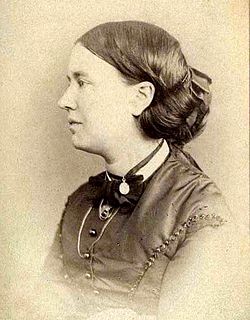A Quote by Walt Whitman
What a devil art thou, Poverty! How many desires - how many aspirations after goodness and truth - how many noble thoughts, loving wishes toward our fellows, beautiful imaginings thou hast crushed under thy heel, without remorse or pause!
Related Quotes
O time, swift robber of all created things, how many kings, how many nations hast thou undone, and how many changes of states and of various events have happened since the wondrous forms of this fish perished here in this cavernous and winding recess. Now destroyed by time thou liest patiently in this confined space with bones stripped and bare; serving as a support and prop for the superimposed mountain.
O admirable Mother of God! How many sins have I committed for which thou hast obtained pardon for me, and how many others would I have committed if thou hadst not preserved me? How often have I seen myself on the brink of Hell in obvious danger of falling into it but for thy most benign hand which saved me? How often would the Roaring Lion of Hell have devoured and swallowed up my soul had not the charity of thy heart opposed him? Alas! Without thee, my dearest and my all-good Mother, where should I be today? I should be in the fiery furnace of Hell from which I would never emerge!
As there is no worldly gain without some loss, so there is no worldly loss without some gain; if thou hast lost thy wealth, thou hast lost some trouble with it; if thou art degraded from thy honor, thou art likewise freed from the stroke of envy; if sickness hath blurred thy beauty, it hath delivered thee from pride. Set the allowance against the loss, and thou shalt find no loss great; he loses little or nothing, that reserves himself.
What is thy thought? There is no miracle?
There is a great one, which thou hast not read,
And never shalt escape. Thyself, O man,
Thou art the miracle. Ay, thou thyself,
Being in the world and of the world, thyself,
Hast breathed in breath from Him that made the world.
Thou art thy Father's copy of Himself,--
Thou art thy Father's miracle.
The worldly wisdom of the foolish man Is like a sieve, that does alone retain The grosser substance of the worthless bran: But thou, my soul, let thy brave thoughts disdain So coarse a purchase: O be thou a fan To purge the chaff, and keep the winnow'd grain: Make clean thy thoughts, and dress thy mixt desires: Thou art Heav'n's tasker, and thy God requires The purest of thy flow'r, as well as of thy fires.
Both in thy private sessions, and the universal assizes, thou shalt be sure of the same Judge, the same jury, the same witnesses, the same verdict. How certain thou art to die, thou knowest; how soon to die, thou knowest not. Measure not thy life with the longest; that were to piece it out with flattery. Thou canst name no living man, not the sickest, which thou art sure shall die before thee.
Think not so much of what thou hast not as of what thou hast: but of the things which thou hast, select the best, and then reflect how eagerly they would have been sought, if thou hadst them not. At the same time, however, take care that thou dost not, through being so pleased with them, accustom thyself to overvalue them, so as to be disturbed if ever thou shouldst not have them.
O vanity, how little is thy force acknowledged or thy operations discerned! How wantonly dost thou deceive mankind under different disguises! Sometimes thou dost wear the face of pity; sometimes of generosity; nay, thou hast the assurance to put on those glorious ornaments which belong only to heroic virtue.
O innocence, how glorious and happy a portion art thou to the breast that possesses thee! thou fearest neither the eyes nor the tongues of men. Truth, the most powerful of all things, is thy strongest friend; and the brighter the light is in which thou art displayed, the more it discovers thy transcendent beauties.
Solitude delighteth well to feed on many thoughts;
There as thou sittest peaceful, communing with fancy,
The precious poetry of life shall gild its leaden cares;
There, as thou walkest by the sea beneath the gentle stars,
Many kindling seeds of good will sprout within thy soul;
Thou shalt weep in Solitude,--thou shalt pray in Solitude.
Thou shalt sing for joy of heart, and praise the grace of Solitude.




































